To talk about future actions we use mainly two verb tenses: be going to and will, but they are not used for the same purposes. Check the way they are different and some examples on how they are used:
Be going to
Affirmative
Subject + verb to be + going to + verb simple form + complement
I am going to have my first baby in October 2022.
Negative
Subject + verb to be negative + going to + verb simple form + complement
Sarah and Peter aren’t going to get married next year. They said they aren’t ready yet. They are going to wait for a few more years.
Interrogative
Verb to be + subject + going to + verb simple form + complement + ?
Are you going to travel to Paris in the short run?
Uses
To talk about plans in the future
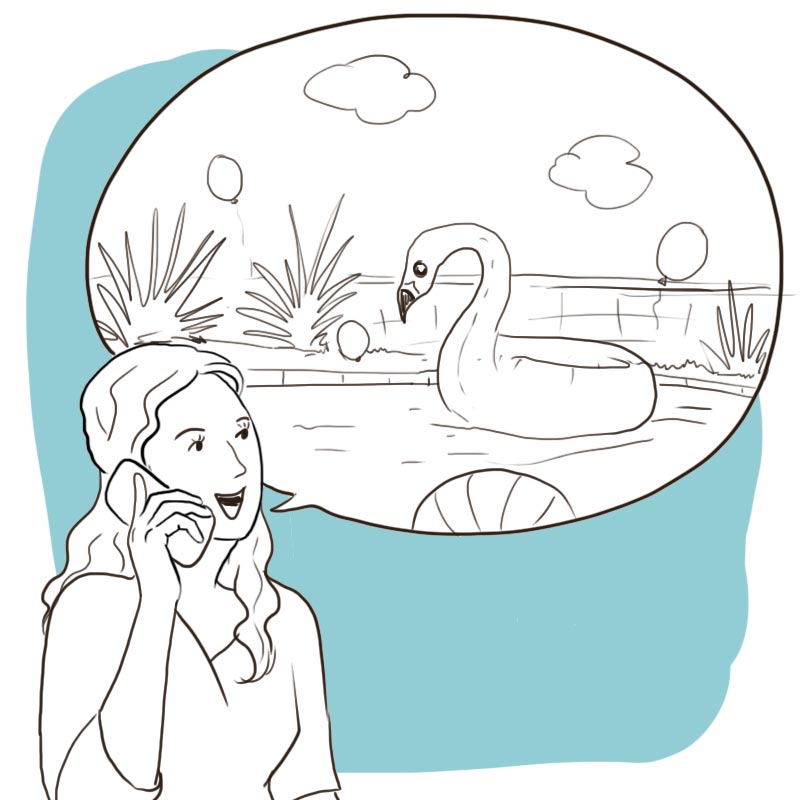
Patricia: Hi, Andy! I’m going to have a pool party in Cuernavaca next Saturday at 3, would you like to come? All our friends are going to be there.
Andy: Sure!
To talk about predictions based on evidence
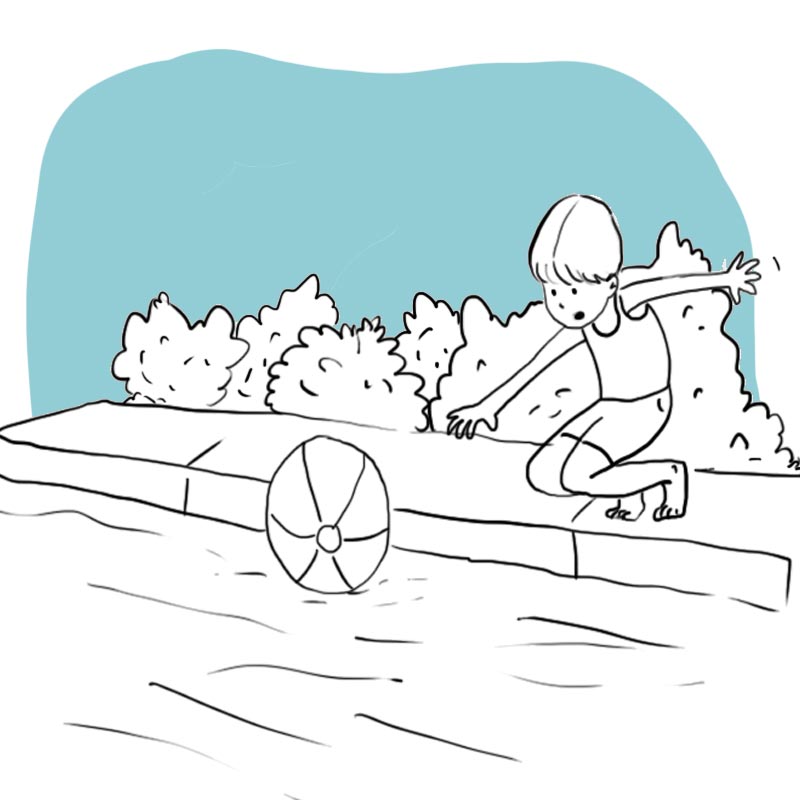
Look at that boy! He’s going to fall into the pool! Somebody help him!
Will
Affirmative
Subject + will + verb simple form + complement
Leo, I think you will be rich and famous in the long run.
Negative
Subject + will not / won’t + verb simple form + complement
Alan won’t be happy with Mavis. He shouldn’t marry her. I will call him to tell him he’s making a huge mistake.
Interrogative
Will + subject + verb simple form + complement + ?
Alan: Will you marry me, my love? Mavis: Of course I will.
Uses
Predictions based on personal opinion, usually with the verbs think, believe, I’m sure, Iguess and as far as I can see.
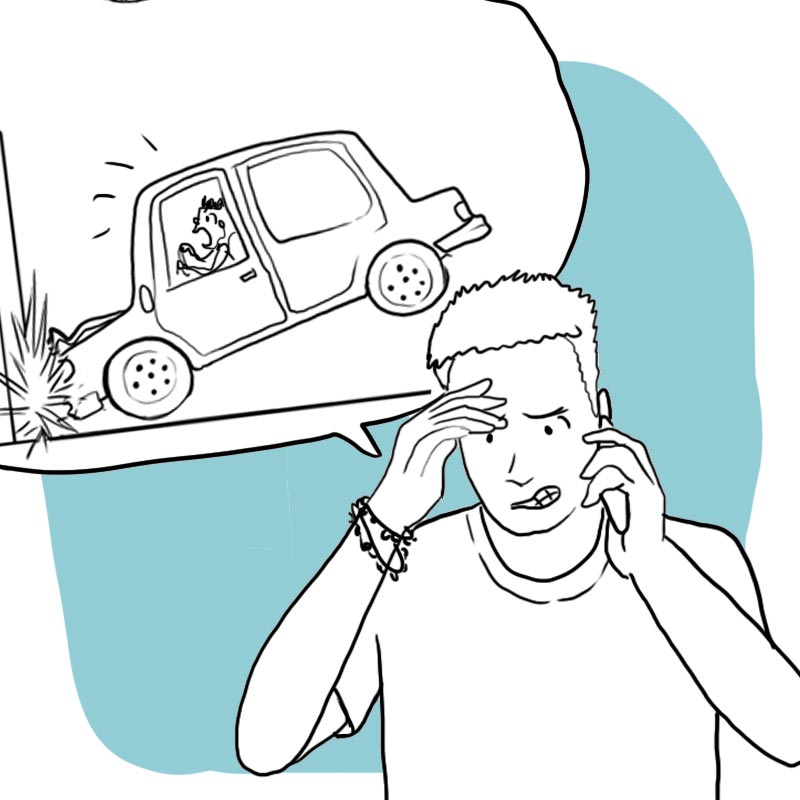
Dani: Hi, Mario!
Mario: What’s up, bro? You look disturbed. Are you okay?
Dani: Well… Not really.
Mario: What’s the matter?
Dani: I crashed my father’s car. He’s going to kill me.
Mario: Don't worry. I think your father will understand that it was an accident. I believe you will be fine.
Dani: Thanks, bro! I really needed to hear that.
WH-Question words
When we ask questions in English, we use question words. They are called WH-Question words because they all start with the letters WH. Let's check some of them. Read the dialogue between Andy and Patricia.
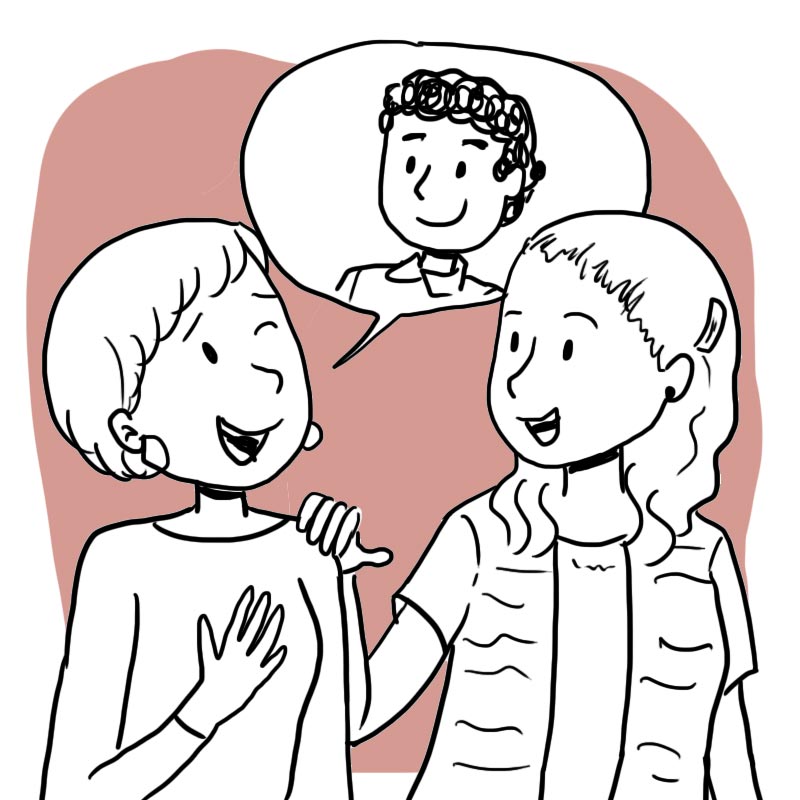
Patricia: So, Andy… About the party, who are you going with?
Andy: I was thinking of telling James, but I’m not sure. What do you think?
Patricia: If I were you, I would totally invite him. He’s really nice and funny. I’m sure you will have lots of fun with him.
Andy: I agree! Where is it again?
Patricia: In my house in Cuernavaca. Do you remember how to get there?
Andy: I don’t think so. Why don’t you send me the address?
Patricia: Sure! I will send it to you right now.
Andy: Thanks a lot. Final question: When is the party?
Patricia: Next Saturday at 3. Don’t be late!
Andy: OK. See you there. Thanks a lot for the invite!
Patricia: I’m sure we will have a great time! See you there.
Expressing agreement and disagreement
When we agree or disagree with someone, we can use different expressions.
To express agreement we can use:
- I think
- I believe
- I’m sure
- As far as I see
- From my point of view
- I agree
- That’s right
- Exactly
- Definitely
- That’s true
For example:
Boss: From my point of view, it is time to increase the prices in our top products. The company needs more money. I think we will lose some clients, but I’m sure we can get new ones.
Me: I think/believe you are right. However, as far as I see, if we come up with a strategy to keep the ones we already have, we will be able to keep the ones we have and to get new ones.
When we disagree with someone, we can use:
- I don’t think so
- I don’t agree
- I disagree
- That’s not true
- That’s wrong
- That’s incorrect
- That’s not right
- That’s not the case
- That’s not the way I see it
- That’s not my opinion
For example:
Teacher: If you do your project in advance you will deliver the best version of it.
Student: I don’t think so. I believe I work better under pressure. I disagree with you.
Teacher: If you have any questions, send me an E-mail. I’m sure I will help you.
Student: That’s not true. I sent you an E-mail last week and you didn’t answer me.
Time Expressions
As in all verb tenses, we use time expressions to indicate when the action takes place. With be going to and will we use the time expressions that make reference to the future, for example:
There are other time expressions that we can use to talk about the future. Check some of them:
On + Day
On Monday, On Tuesday, On Saturday, etc.
In + period of time
In a week, in an hour, in a month, in five years, etc.
In the near future / In the short run
In the long run
Read the text again and put in order the images according to Sarah and Santiago’s plans.
Conversation 1
Alex: Hi, Angie! What are you doing next summer? Why don’t we go to Acapulco?
Angie: I don’t think I will enjoy that place. It is always crowded.
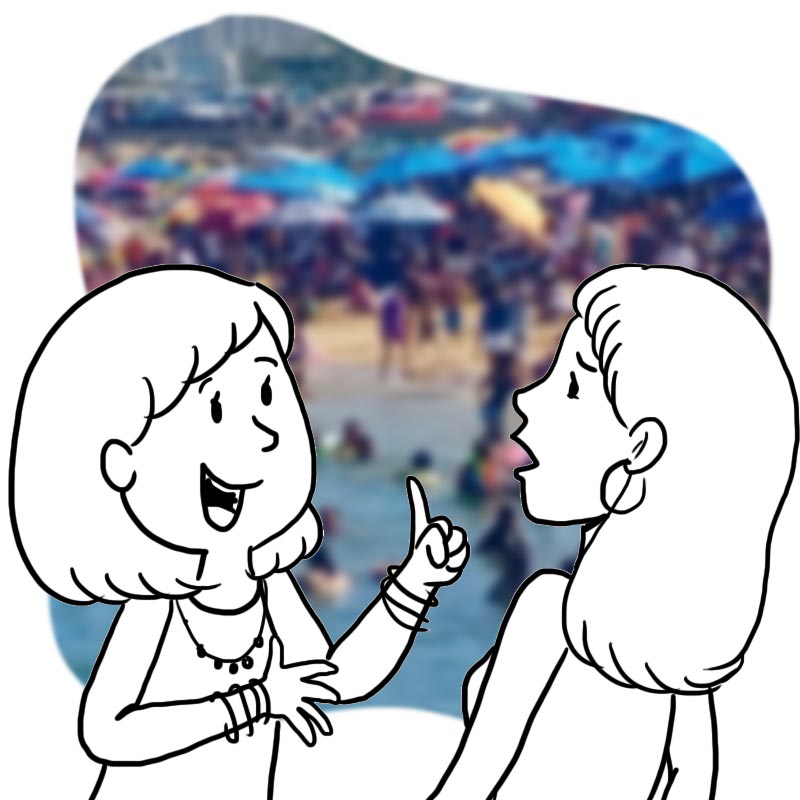
Conversation 2
Angie: What about you, Alex?
Alex: I’m going to go to Cancún with my friends. We are going to leave on August 5th and we are going to be back on August 12th. We already have our plane tickets and hotel reservations.
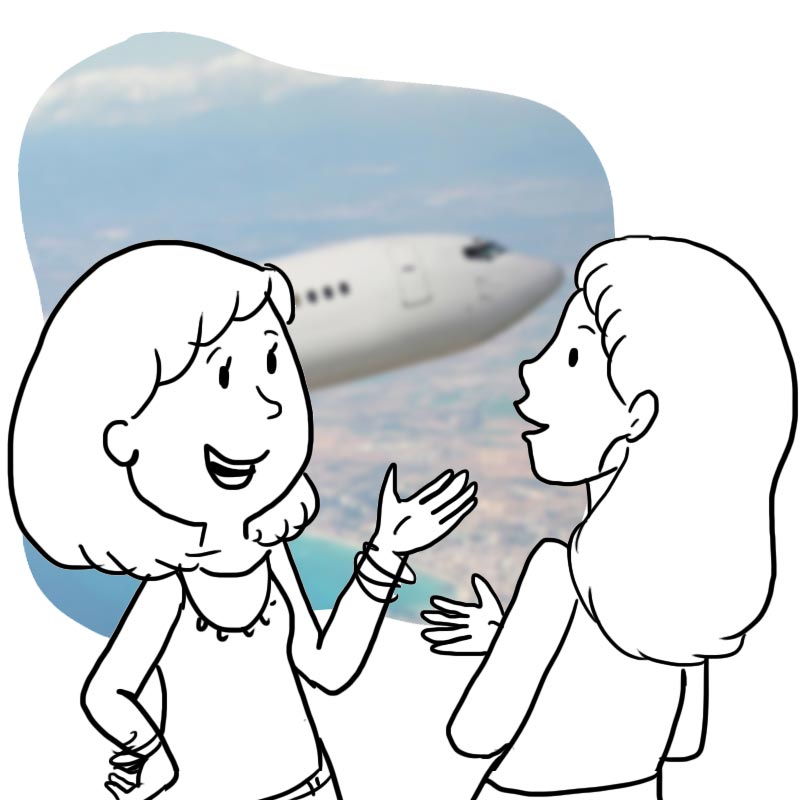
Conversation 3
Mario: Look! Here comes Andrea!! Is she driving her new car?
Dani: I think so. Oh my God! She almost hit the black car!!
Mario: Oh, no! She’s going to crash!
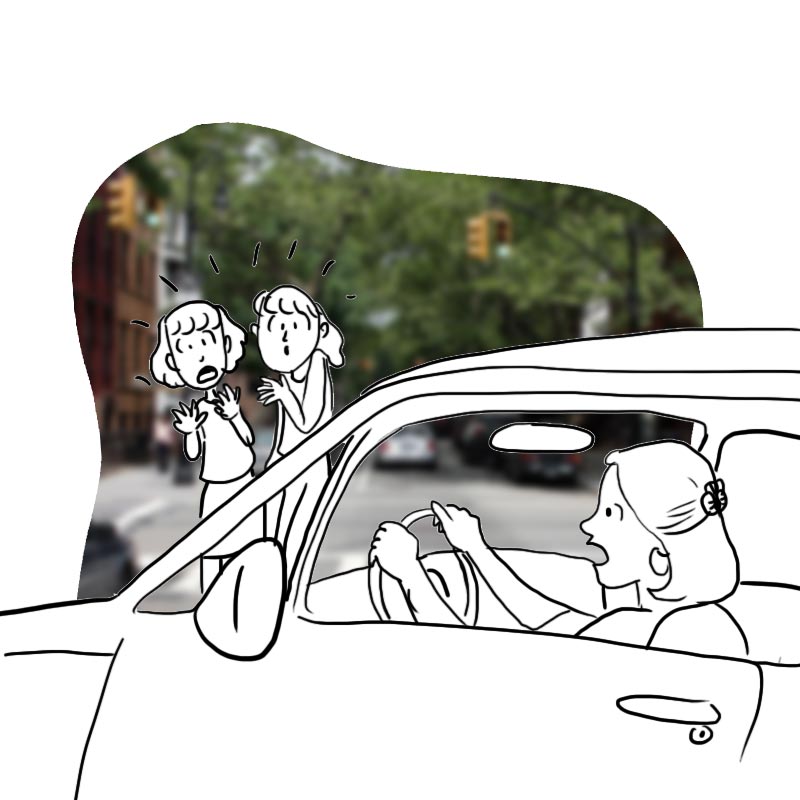
Listen and read. Then choose the correct option.


